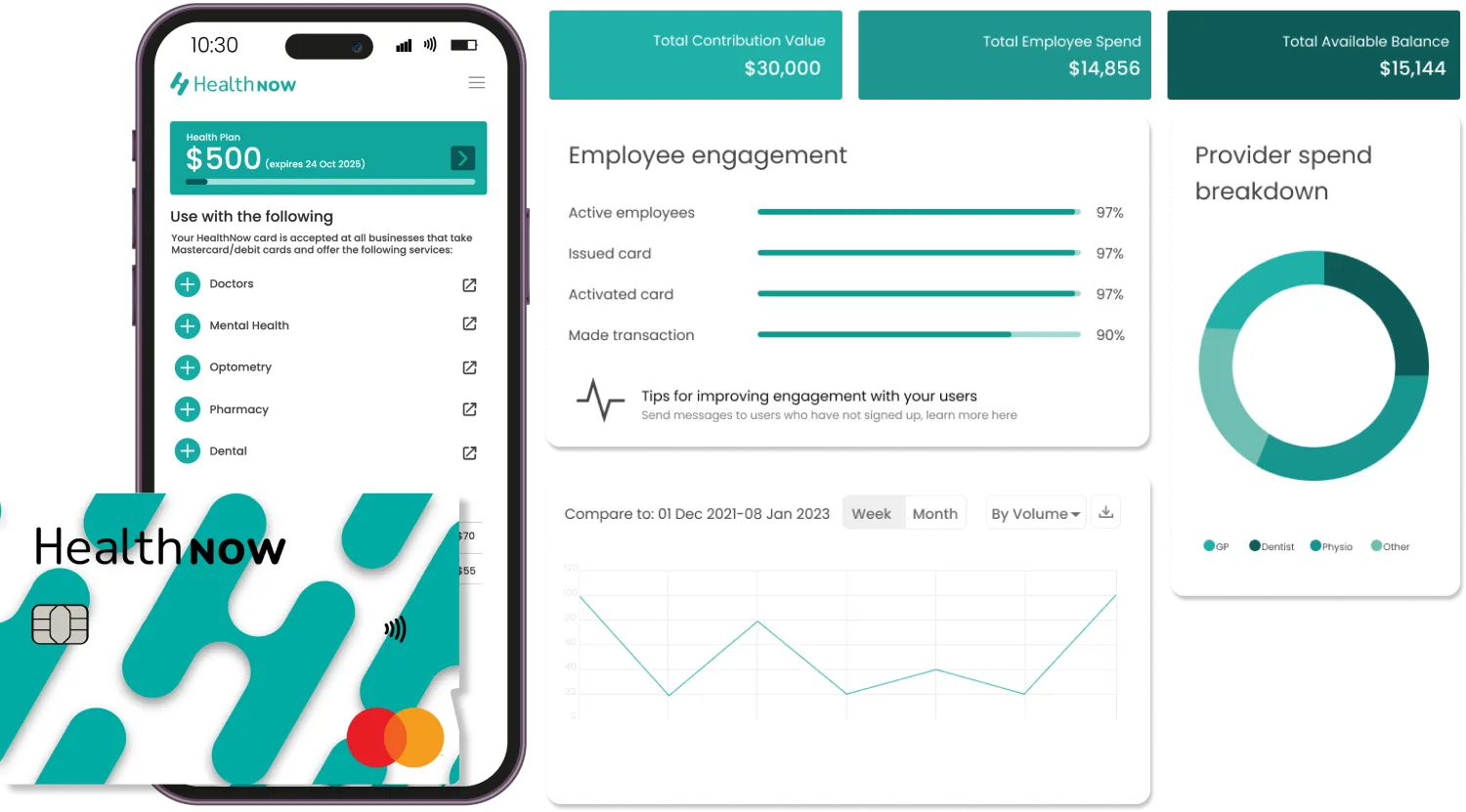Woody Allen once said simply showing up accounts for 80% of your success, but when it comes to the workplace, a growing body of research is beginning to indicate that this may be rather optimistic. Presenteeism, or the problem of workers being on the job but not functioning at their full capacity, because of illness or other medical conditions, can cut productivity by one-third or even more.
Put simply, when people don’t feel great, they don’t perform at their best. However, many employees feel it’s their duty to continue to turn up at the office, even if they’re ill – saving their allocated sick days for when the kids are sick, or when they’re in a significantly worse state – as opposed to fighting something that seems milder, yet leaves their productive capacity diminished.
Unfortunately, the number of employees coming into work while sick has more than tripled since 2010. Employers are beginning to see the impacts that this invisible but significant drain that presenteeism has on productivity and revenue, so why is presenteeism hitting record-high levels?
Presenteeism: When Your Physical And Mental Health Concerns Come To Work With You
Unlike absenteeism, presenteeism can be harder to identify. It’s easy to notice that someone is absent from work, but it’s difficult to tell when, or how much poor physical or mental health is hindering performance. Many workers suffer from chronic health conditions that are long-term, and they may not feel comfortable being honest about symptoms that can only be managed rather than cured. Sometimes, the problems may also be lifestyle-related. In a dedicated report, The Financial Times listed a number of major contributors to presenteeism, including:
- Sleep difficulties
- Headaches and migraines
- Allergies and asthma
- Back pain and arthritis
- Depression and high stress
- Poor nutrition
- Muscle-skeletal conditions
- Alcohol and smoking
- Lack of physical activity
- Obesity
- Financial concerns
- Stomach upsets
We spend more than a third of our lives at work, so it’s little wonder that our health strongly impacts our work and performance. As well as this, we often don’t stop being troubled by our financial difficulties, grief or other life pressures just because we’ve turned up to work. For example, employees who suffer from depression may feel persistently fatigued and irritable, and, therefore, be less able to work effectively with others. Those with migraine headaches who experience blurred vision and sensitivity to light, not to mention acute pain, likely struggle to work well while staring at a glaring computer screen under fluorescent lights for most of their day.
Impacts On Productivity – Loss Of Quality And Quantity
Presenteeism, as defined by researchers, should not be confused with malingering, or pretending to be ill to avoid work duties, or choosing to spend work time surfing the internet chatting to colleagues around the water cooler. It specifically refers to productivity loss resulting from notable health problems. This highlights that employees do not take their jobs lightly, and that most of them need and want to continue working if they can. Particularly in these tough economic times, when people are more afraid of losing their jobs, people are hanging in there when they get sick and carrying on despite their symptoms. For workers with chronic conditions that flare up regularly, this means they are affected more than it would be reasonable to take time off.
While workers do this with the best intentions, and the company’s best interests at heart, continuing to come to work when they are troubled by pain, allergies or lack of sleep affects both the quantity of their work, and the quality. Chances are, they’ll take longer to complete tasks than usual, or need to repeat tasks that haven’t been completed well, and they’re more likely to make errors or produce work that isn’t as good as it could be otherwise. For example, the ongoing pain of gastrointestinal disorders such as irritable bowel syndrome, reflux and heartburn is a persistent distraction, and back pain and arthritis can greatly impact a person’s ability to do all kinds of work, including physical tasks requiring strength or manual labour.
Financial Impacts – Presenteeism Costs Businesses More Than Absenteeism
- Harvard Business Review has estimated that presenteeism costs the U.S. economy more than US$150 billion a year in lost productivity, far surpassing absenteeism costs, and workers struggling with anxiety and depression are expected to make up a significant portion of this loss.
- In the UK, it’s been estimated that presenteeism costs businesses over £15.1 billion each year, and that estimate only included the costs involved with presenteeism due to mental health concerns
- Two studies carried out by the Journal of the American Medical Association found that the on-the-job productivity loss resulting from depression and pain was roughly three times greater than the productivity lost due to absenteeism arising from these conditions. That is, less time was lost from people staying home than from them showing up but not performing at the top of their game.
- One study investigated the impact of irritable bowel syndrome on presenteeism. It found that at least 10% workers suffer from the condition, and that flare-ups reduced workers’ on-the-job productivity by around 20% across a wide range of clerical and executive jobs. “People show up for work, but with the pain—not to mention frequent trips to the bathroom—they’re just not very productive.”
Employer Aid: Spending To Save
Research has found that presenteeism costs employers significantly more than direct medical care, which is often paid for by companies in the form of insurance premiums or employee claims.
Because of this, a growing number of companies are making targeted investments to reduce the prevalence of illnesses and other medical conditions that undermine job performance, and finding cost-effective ways to reduce presenteeism and the related drop in productivity.
Specifically, many NZ businesses are now offering employer aid benefits to cover the screening, treatment and management of common presenteeism contributors.
How Is Employer Aid Boosting Productivity And Revenue?
Employer aid is delivered as a financial contribution to an employee’s dedicated health wallet, which can only be used on health-related services and products both in a reactive and preventative capacity. Simply put, funds are deposited periodically at an interval chosen by the business, with the employee able to see that money sitting in their health wallet in real time – a big benefit over health insurance plan contributions which are not seen, and appear to be ‘lost’ if they’re not claimed upon within the year.
The employee then chooses which services to spend their funds on – whether that’s doctors visits, seeing a physiotherapist early for a niggle instead of waiting for it to become a full-blown injury, or covering the cost of prescriptions or supplements from the pharmacy. Employer aid also recognises that a person’s wellness and productivity is linked to their family too – when family members are unwell, sleep suffers, time off may need to be taken, and worries or intermittent phone calls can disrupt days. This is why employer aid payments can also be used to cover the health costs of direct family members, too.
Employer Aid Made Simple For NZ Businesses
Operating across New Zealand and the US, HealthNow makes offering employer aid easy and simple, by welcoming you into their AI-driven platform and international technology that comes with a dedicated health saver’s wallet for employer aid payments.
The onboarding process is free and easy – and can be implemented with no additional out-of-pocket costs than what you’re already paying towards their health insurance plans or other wellness measures. Payments to your employee’s health wallets can be automatically made monthly or at a frequency and dollar value that you choose. You can leave your employee’s health wallets open to be used on any health or medical service with HealthNow, or specify the services you’d prefer. The funds can only be spent on health services and products within New Zealand.
HealthNow provides updates on your impact to help you measure the value of employer aid within your company. Your contributions are not subject to the Fringe Benefits Tax, are free for your employees to use (they even get a free $10 credit with their free sign-up), and HealthNow has an ever-growing trusted network of medical providers to keep your staff healthy and happy.
To get started, register your company’s interest via this contact form and a HealthNow team member will get back to you promptly.








